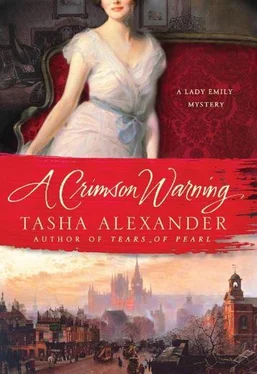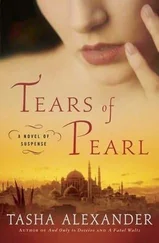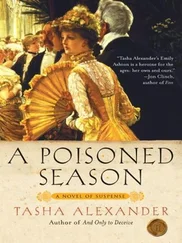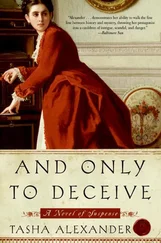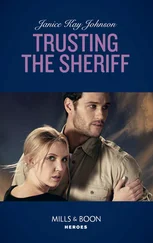As for the rest, I would continue to work on all who admitted a fondness for romantic poetry, detective stories, and those who preferred Hector to Achilles in The Iliad. The latter, I believed with all my heart, could not hold such an opinion without some degree of enlightenment.
“I do hope you’re not too disappointed,” Mr. Foster said, as he escorted me out of the building. “They are a pack of beasts.”
“You should be careful of saying such things,” I said, opening my parasol to protect me from the glaring sunlight. “You’re our best hope for future prime minister.”
“You flatter me,” he said, bouncing a bit as he stood. He was on tiptoes, giving himself an extra inch or so of height. “Gladstone’s in good form. But I do appreciate your confidence.”
“I wouldn’t expect you to do anything but support your leader. You’re too well bred.”
He smiled but said nothing.
“I can’t thank you enough for your help,” I said.
“I couldn’t be happier to provide you with assistance,” he said. “It’s a difficult path you’ve chosen, Lady Emily, but a worthy one. I wish you much luck with it.”
“I know you agree with our principles, but can we count on your public support?” I asked.
“You can be certain I shall never speak against the goals of the Women’s Liberal Federation.”
It wasn’t the same as real support, but I reminded myself that he was a gentleman with the highest aspirations. Alienating a large part of the voting public would not serve him well. Should he ever become prime minister, then he might be in a position to take a firmer stand.
At least I hoped so.
“What do you think of all this red-paint business?” I asked.
“Stuff and nonsense,” he said. “Petty gossip taken to a new level.”
“But lives are being destroyed,” I said.
“Lives have always been destroyed by such things,” he said. “This time, it’s being done for a larger audience, that’s all.”
“Who do you think is responsible?”
“Impossible to say, really. Who hasn’t felt tormented by the ton at one time or another?”
“True,” I said. “But wouldn’t most people seek revenge against the individuals whom they felt harmed them rather than striking out at all of society?”
“Most would, I suppose. But some people have a higher purpose than personal retribution.”
“And you think that is a good thing?” I asked.
“Heavens, no!” He brushed his sandy hair back from his face. “Although one could argue it’s time society had a good shaking up. That it lose some of its hypocrisy.”
“I couldn’t agree more,” I said. “But there must be a better way to do it.”
“I’m certain there is,” he said. “There are times, though, when the final result merits an unconventional approach. Even one that hurts people.”
* * *
Days passed before I had occasion to think of Mr. Foster again. I’d spent a relatively tedious afternoon at home receiving callers, when relief came in the form of Ivy and Jeremy. They’d arrived late, as close friends do, and we were all laughing as I described for them my adventures in Westminster.
“But isn’t Mr. Foster the most handsome man you’ve ever seen?” Ivy asked. “Other than Colin, of course.”
“Colin is much more handsome,” I said. “I grant you Mr. Foster is extremely easy to look at, and quite distinguished, though one does wish he was a little taller. He’s also smart, which more than makes up for any physical drawbacks. He quotes Byron with such finesse it’s almost unnerving.”
“Unnerving?” Jeremy asked. “The only unnerving thing I see here is discussing the repulsively perfect merits of some other bloke. Have you ladies no hearts?”
“You know we adore you, too,” I said. “But I do like Mr. Foster very much. He’s the closest thing we have to a modern Alexander the Great. Except, of course, that he hasn’t conquered anything yet.”
“Wait until he’s prime minister,” Ivy said.
“I don’t know how these bloody Etonians do it,” Jeremy said. “It’s bad enough they’ll walk over fire for each other to ensure they run the empire. I’ve learned to tolerate that with equanimity, because I’ve no interest in running it myself. But I won’t have them winning the hearts of all the ladies as well.”
Davis opened the door. “Simon Barnes, madam.”
“Thank heavens,” Jeremy said as the new arrival entered the library. “I’m in desperate need of reinforcements, Barnes. You’ve saved me.”
Simon Barnes stood taller even than Jeremy. His black hair, oiled and combed back in a rather old-fashioned manner, made him look older than his age, as did the heavy creases on his forehead. It was hard to believe he and Mr. Foster had been at school together.
“What a lovely surprise,” I said, raising my hand to him. “We’ve just been discussing the countless merits of your friend, Mr. Foster.”
“There’s not a better man in Britain,” Mr. Barnes said. “He should be prime minister someday.”
“I told him just that a few days ago,” I said. “His response was all modesty.”
“Bloody bore to be prime minister, I’d think,” Jeremy said. “I say, Barnes, enough of this. I want to hear about your days in the West Indies. Surely you’ve troves of stories of pirates and hidden treasure and I know not what else. Anything, really, that gets us off the topic of Foster.”
Simon Barnes had spent his childhood in the West Indies, where his grandfather was governor of one of the islands. Barnes’s mother had been her father’s favorite, and he indulged her every whim. Strong-minded and determined, she’d insisted on marrying a local boy from a well-to-do family. Going native was not something of which English society was much fond, but her father did not object. He had no taste for being the instrument of his daughter’s heartbreak. When she died in childbirth a mere eighteen months later, he took her son, Simon, into his house and gave him his name. The boy’s father protested not at all. The islanders accepted mixed marriages as little as the English, and he slunk back to his family to beg forgiveness for his choice of bride. Within a month, he was remarried to someone deemed more acceptable.
Barnes’s grandfather doted on him, sparing no expense to give him the best. He sent him to England for his education, where the boy excelled academically. Barnes sailed through Cambridge, and had spent the subsequent years working in politics. He’d made himself indispensable to nearly every prominent liberal in the past twenty-odd years, spending all his time in London save a two-year return to the land of his birth when his grandfather died.
“It’s not so romantic as you think,” Mr. Barnes said. “Unless you’ve a fondness for muggy nights and enormous insects.”
“I shouldn’t think I’d like it,” Ivy said.
“It can be hard for a delicate constitution to adjust to the extremes of island weather. England does not well prepare one for heat.” Mr. Barnes’s smile was wide and bright, his voice soft. He didn’t quite look English, but neither did he look like a native West Indian. It was as if the familiar and the foreign lived side by side in him. “I’m sorry to be calling so late, Lady Emily. I’ve no right to intrude in so intimate a gathering.”
“There’s no need for apology,” I said. “We’re delighted to have you join us.”
“I confess I was hoping to see your husband,” he said. “This red-paint business is causing quite a political stir. I’d like to speak to him about it.”
“You don’t think Mr. Gladstone will find his house vandalized, do you?” Ivy asked.
“No,” Mr. Barnes said. “I think we’re all aware of the prime minister’s quirks and eccentricities. I don’t think there’s much left for him to hide. But to see so many families under the threat of whoever is behind this smear campaign is disturbing. The government are taking it quite seriously. They feel no one in London is safe at the moment.”
Читать дальше
